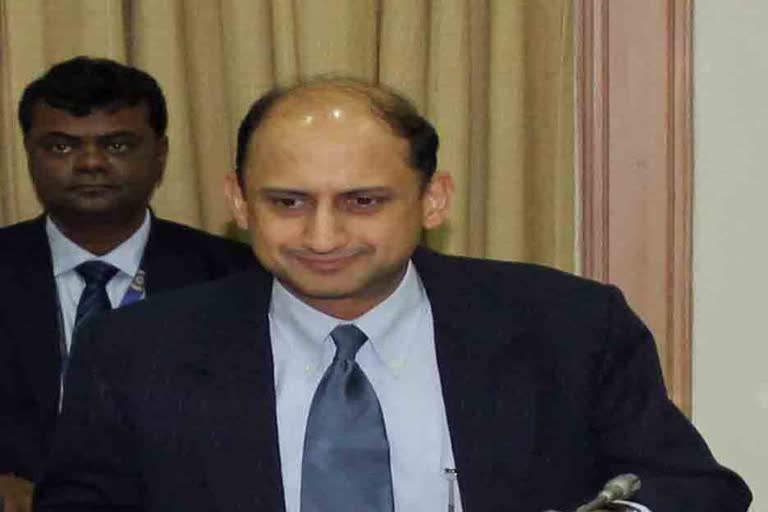Mumbai: RBI Deputy Governor Viral Acharya's resignation on Monday did not surprise many. Market sources said it was expected, given his views on the Reserve Bank of India's (RBI) position in the economy.
Acharya's exit from the RBI top ranks was being speculated upon since last year when he took on the government with a hard-hitting speech on the need to ensure the central bank's independence.
In fact, the most recent round of tension between the government and the RBI culminating in the abrupt resignation of former RBI Governor Urjit Patel, was signalled in a speech by Acharya after the government sought consultations with the RBI under Section 7 (a provision rarely used) of the RBI Act, which allows the government to give directions to the central bank in public interest.
On Monday, the RBI said Acharya had resigned for personal reasons.
He has voted for rate cuts only twice in 15 monetary policy reviews. He opposed rate cut even in the February and April monetary policies this year.
Acharya is in the mould of a classical economist for respecting central bank's independence. Among the most prominent and controversial issues between RBI and government where he was involved included the demand that the central bank shell out more dividend, which was strongly opposed by Acharya.
In a speech in October 2018, Acharya cited the example of the Argentinian central bank governor, who resigned after the country's government raided the central bank's balance sheet.
"Governments that do not respect central bank independence will sooner or later incur the wrath of financial markets, ignite economic fire, and come to rue the day they undermined an important regulatory institution," Acharya had cautioned.
The final report of the committee set up by jointly by the RBI and the government to examine the RBI's Economic Capital Framework (ECF) is expected this week, while official sources in New Delhi said there is lack of consensus in the ECF panel over the transfer of capital and reserves to the government.
Read more:Viral Acharya unable to continue as deputy governor beyond July 23: RBI
After Patel resigned in December and Shaktikanta Das took over as Governor, the RBI has cut its repo, or short term lending rate for commercial banks, thrice already, bringing it down to 5.75 per cent. Acharya had voted against the cut two out of three times.
Acharya's view has been that the RBI's monetary policy committee (MPC) needs to focus on ensuring that inflation is kept close to the target of 4 (+/-2) per cent in a durable way countering the Governor Das's view for a repo rate cut in view of the economic slowdown.
Acharya argued that at least a part of the recent growth slowdown is due to temporary factors and at the June meeting, Acharya voted for a cut in rates as an "insurance" against a further slowdown.
Flagging the risks of fiscal slippage in his last MPC meeting earlier this month, Acharya cautioned against any further soft approach by the RBI.
He noted that overall public sector borrowing - which accounts for extra-budgetary resources and other off-balance sheet borrowings of central and state governments a "has now reached between 8-9 per cent of GDP." He was of the view that this was at a level similar to that in 2013 at the time of the "taper tantrum" crisis.
"Correct economic measurement of the fiscal slippage should factor in the implications of a rising PSBR (Public Sector Borrowing Requirement) rather than rely solely on the consolidated fiscal deficit figures, the former Deputy Governor had said.
In January 2018, with the rising bond yields causing concern, Acharya told banks that "interest rate risk of banks cannot be managed over and over again by their regulator", after repeated requests from bankers for a special window to provide for treasury losses.
Acharya has taken a similar view on the demand for easier liquidity conditions. Noting that liquidity infusions of the central bank are determined by the needs of the economy and not the price of long term assets, he had snubbed any calls for more bond purchases RBI to check rising yields.



